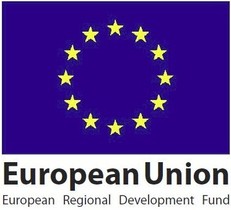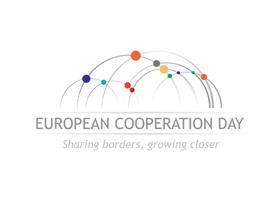STAFF EXCHANGE PROGRAMME IS NOW COMPLETED WITH 23 TRAINED STAFF MEMBERS
Enhancement of knowledge, skills and expertise of key staff that are responsible for policy implementation in heritage tourism management through staff exchanges and training is achieved and completed. In the period from November 2012 - December 2013, 13 out of planned six staff exchanges are done under 9 out of 12 established good practices with 23 trained persons.
CHARTS Staff Exchange programme is a knowledge transfer and staff exchange amongst partners in order to provide hands-on experience and thus strengthen the lessons learned during the course. One person or more from one partner worked for another partner with expertise in a Good Practice field linked to the potential transfer of good practice.
December 2013
Eight staff members from VG Region (Sweden) went to CADW (UK) in beginning of December 2013 under four good practices: quality criteria, accessibility to heritage, climate change and traditional skills.
Developer of VG Region, Anders Nilsson: "We had dialogues with HEG - climate change subgroup on climate change on cultural heritage which was formed in order to grasp the specific issues , such as climate change. I learnt how to work in a Heritage environmental group on Climate change issues."
Developer of VG Region, Barbro Lindh: "We had discussions concerning methods for understanding the visitor's experiences, before, during and after the visit and how do we keep the quality when the budgets are cut. We need to adapt our plan to the specific place. Tourism is a perception business, our customers experiences decide how we are perceived. Methods for keeping tabs on social media, e.g. "Trip Advisor". People pay more attention to what their friends write online other than to official rankings. We also discussed how we can get an organization to adapt to the new guidelines. CADW have done major changes in the last couple of years. Aim was to transform their attitudes from guards to guides. I learnt how to work methodically with quality improvement, how to make changes within an organisations and how to interpret places, like Blaenaevon, a town and World Heritage Site in south eastern Wales."
Expert on Quality Management of VG Region, prof. Bo Bergman: "We talked a lot about quality and its meaning, the Kano-model, the role of the customer, and how to create an atmosphere of improvement. We also had a dialogue on the importance to involve the customers in the improvement of the destinations, network of providers, and their services. We discussed aspects of Cultural Tourism but also more general research topics, especially the activities of the Cardiff Business School within the area of quality where they have a long experience of research relating to the Lean concept. An important part of these dialogues were dimensions and indicators for the evaluation of Cultural tourism."
Manager of Public Services of VG Region, Eva Goffe:" Cultural Institutions have to show their value to the society and the importance of involving staff, as well as the customers, in process and early stages of improving the destination."
Development Officer of VG Region, Åsa Kågeson:" We had presentations, discussions and study visits on accessibility to heritage. Also practical survey of Castle Coch one of the sites visited. The survey was conducted in TD - an accessibility database and in an offline app. The purpose was to show the simplicity of working in the system. The castle can be viewed at: www.t-d.se. I learned benchmarking with good insight in how Wales operate in the focus areas. It would be a great opportunity if Wales would join with Veneto in testing TD to survey the accessibility of different sites in the region. A proposal on how this exchange could be set up has been sent to Wales and is also included here: Outlines for collaboration TD - Italy."
Head of Västarvet/Bohusläns museums Heritage Division, Tomas Brandt: "I have obtain an information on how to arrange the upcoming climate change and heritage analysis in Västra Götaland. Since the visit we have had several contacts with our Welsh hosts regarding the issues in designing the Swedish project. Knowledge gained from the visit to our hosts has been essential in succeeding with our own process. Well-functioning long-term relationships between heritage actors in regions (such as the HEG) and the use of interpretation plans to manage interpretation issues are very important. It would be a good idea to arrange future exchange between heritage actors in Wales and Västra Götaland."
June 2013
Two staff members from VG Region (Sweden) went to Veneto Region in the end of June 2013 under good practice on accessibility to heritage.
Development Officers of VG Region, Åsa Kågeson and Camilla Salén: "We are very impressed by our Italian partners that showed great skills in handling the equipment and understanding the system. Also the ability to work with technical solutions and the handling of tablets effectively facilitated our visit and education a lot. We hope that this session can spread the word about TD - an accessibility database to the other project partners. The system is built with the aim to be used world-wide and our experience from Italy tells us that this is possible to achieve. If other project partners find the experience from Italy interesting TD will be glad to conduct more education sessions in other countries with the possibility to join the database."
Staff member from NIRDT (Romania) went to IBERTUR/Barcelona University (Spain) in the end of June 2013 under good practice on cultural routes.
Scientific Researcher of NIRDT, Adriana Radu: "The good practices connected to cultural routes and the community involvement in promoting cultural tourism in Spain could be also applied in Romania even with few financial resources for the development and promotion of cultural tourism at national and international level; many things are being done there for extending the possibilities to receive tourists who suffer of different disabilities so that they could have access to all cultural materials and education the other tourists have. With this participation, I had the opportunity to learn from the best specialists in tourism, to better understand the new tendencies in international tourism and also to identify new possible project partners and collaborators."
April 2013
Staff member from VG Region (Sweden) went to National Institute for Research and Development in Tourism (NIRDT, Romania) in the beginning of April 2013 under good practice on engaging host communities, responsible tourism and quality criteria.
Senior Researcher of VG Region, Ylva Gustafsson: "To bring the tools of host communities back to Sweden, we made an analysis of the different conditions of Romania and Sweden. It was very useful to hear their point of view: conditions, possibilities and difficult areas. During these two days, I learned more about the conditions of Romania than through all my further studies. This made me aware about one thing: in finding tools for ie Quality criteria, it´s essential to find tools who are applicable to a low cost, without the need of consultants or external experts. The aim for our toolbox is, hence, to make it simple, based on the experience of the customer, not on the institution´s point of view."
Two staff members from NIRDT (Romania) went to VG Region (Sweden) in the end of April and beginning of May 2013 under good practice on quality criteria.
Senior Researchers of NIRDT, Trifănescu Rodica and Tudorache Doru: "The officer from the Region Vastra Gotaland explained to the staff from NIRDT the experience, actions and achievements of Secretariat of Culture. We could understand the region cultural priorities related to quality: the importance of culture in region development and citizen's education, unbundled access to culture for children and young people, collaboration with the state of the so-called culture interaction model, close cooperation with local authorities and other stakeholders, development of the capabilities, promotion of innovation and technology, increasing internationalization and thereby increase understanding of the various forms of culture and contribute to literacy skills development. Good Practice on quality criteria at destinations can be implemented successfully in Romania only through a close collaboration between regions and policy makers."
March 2013
Staff member from Mallorca Council – Environment Department (Spain) went to CADW (UK) in the beginning of March 2013, under good practice on traditional skills and trades.
Environmental Technician of Mallorca Council, Miguel A. Salvà Capó: "Specific training courses are necessary to preserve traditional skills and trades. Training courses should be set up for local people, insisting on the fact that traditional materials and techniques are also useful for energetic efficiency. This effort is also possible, and necessary, in private sector for transmission of traditional skills knowledge as the example of Ty-Mawr."
Staff member from CADW (UK) went to the Pafos RBT (Cyprus) in the beginning of March 2013, under good practice on place marketing.
Officer of CADW, Stacy Birkett: "I was interested to see how Tourist attractions and in particular the Heritage product was
promoted. Seeing myself as an independent traveller, I took the opportunity to research how an independent traveller would be informed about what is available in the area. There is much evidence of
the equivalent of our brown signs (road signage), rather better done and more prevalent than we have, I would say."
February 2013
Staff member from Pafos Regional Board of Tourism (Pafos RBT, Cyprus) and Vidzeme Tourism Association (VTA, Latvia) went to South Pelion Municipality (Greece) in the beginning of February 2013, under good practice on effective partnerships.
Marketing Officer of Pafos RBT, Nicolas Tsifoutis: "The most important factor in order to create and maintain a cultural heritage destination is the ideal cooperation of the private and public stakeholders to implement their strategic plan."
January 2013
Staff member of Västra Götaland Region Authority (VG Region, Sweden) went to CADW, Welsh Government's Historic Environment Department (CADW, UK) in the middle of January 2013 under good practice on quality criteria.
Expert of Quality Management of VG Region, Professor Bo Bergman: "We talked a lot about quality and its meaning, the Kano-model, the role of the customer, and how to create an atmosphere of improvement. We discussed aspects of Cultural Tourism, also more general research topics, especially within the area of quality where they have a long experience of research relating to the Lean concept. An important part of these dialogues were dimensions and indicators for the evaluation of Cultural tourism."
December 2012
Two members of Union of South-East Region Local Authority (USERLA, Bulgaria) staff went to Veneto Region in December 2012 under good practice on cycling for tourists.
Officers of USERLA, Zoya Stoyanova and Kamer Ahmedov: "We learnt that the best practices working in Veneto region are a product of a process of systematic and strategical long-term planning that gathered local institutions and stakeholders together united over a common purpose, to diversify the tourist service, target and reach new markets and niches. We also found that it is important first to start developing and establishing a new product or market and after that to expect to drive the demand and attract the customer. It was also interesting and useful to gain some perspective on how Veneto region is trying to expand, diversify and reach out new locations in the tourism industry that is already so impressively developed. Nonetheless there is always room to improve quality, develop new services or spread out positive benefits to other regional places."
November 2012
Staff members from Veneto Region (Italy), and Vidzeme Tourism Association (VTA, Latvia), went to the Midland Regional Authority, Ireland, in the beginning of November 2012 under good practice on accessibility to heritage.
Officer of Veneto Region, Guiseppe Voltolina: "A fundamental component of accessibility considered in the broad sense of access to information. It can allow finding out ideas for the implementation of the good practice on accessibility to heritage. Technology can be considered as one of the main drivers of accessibility for a sustainable development of tourism, so I would like to say that in both regions there are only strengths to use it."
Assistant of VTA, A.Kupce: "Accessibility can be physical, mental, virtual and mobile. Technology is a key for everything nowadays, main drivers of accessibility and also sustainability. Using 3D models in Vidzeme region will be good way to attract visitors, as well as people with disabilities".


















































